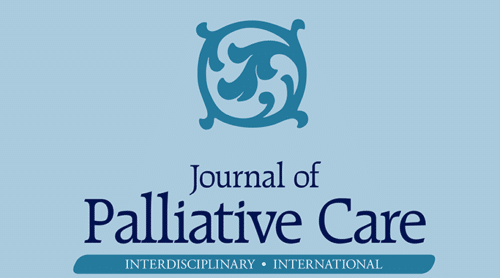„Journal of Palliative Care” publikuje relację z pierwszej ręki na temat życia z PPA

Joanne T. Douglas, PhD, who has primary progressive aphasia (PPA), has published a paper in the Czasopismo Opieki Paliatywnej outlining how she manages her PPA through a multidisciplinary palliative care approach.
In the paper, Dr. Douglas discusses her road to a diagnosis. She first noticed difficulties in her language capabilities shortly after her 44th birthday; within 18 months, her language deficits resulted in her premature retirement from her faculty position as a scientist in an academic medical center. She was then diagnosed with the nonfluent/agrammatic variant of PPA.
Dr. Douglas immediately began strategizing the most effective approach to her care, which included her medical team adopting a palliative care approach.
“The first step of this palliative care approach was for my doctors to understand what is most important to me and what makes my life meaningful. These early conversations were of paramount importance in allowing my wishes to guide my doctors in the personalization of my care, as well as in shaping my own attitude toward my disorder,” Dr. Douglas wrote in the paper. “My key physicians collaborated closely to develop a personalized palliative care approach that supported my goals of care.”
Dr. Douglas worked with a team of doctors with a variety of specialties that included speech pathologists, physical therapists, a registered dietician, and a physician specializing in sleep medicines.
“[My core doctors] have also shown great kindness in devoting significant time and thought to the ongoing process of devising personalized strategies to improve my quality of life, and then modifying these strategies as additional deficits
Due to the progression of her PPA symptoms, Dr. Douglas has had to adjust her writing process to continue contributing to PPA research initiatives.
“Although these tailored adaptations have allowed me to make the best use of my ability, my difficulty with language has progressed to a point where I can no longer write at a high level for more than eight minutes per day,” she wrote. “Whereas a paper this length would have been a couple of days’ work during my career as a university professor, I have written this manuscript in more than 200 sessions over the course of 14 months, after a 3- to 4-monthlong pre-writing period during which I made notes.”
She also noted in the paper that “additional research is needed to develop optimal ways of integrating palliative care into the care of all patients with serious disorders in both academic and community settings, and to encourage the adoption of a palliative care approach early in the course of disease.”
Dr. Douglas’s paper is available to read, for a fee, on the website of the Czasopismo Opieki Paliatywnej.
She has previously contributed resources to AFTD, including a two-part guide that persons in early PPA can use to overcome barriers to communication. (Part 1 is available here; part 2 is available here.)
She has also written a list of strategie to help those którzy nie są zdiagnozowani with PPA better communicate with those who are.
Według kategorii
Nasze biuletyny
Bądź na bieżąco
Zarejestruj się już teraz i bądź na bieżąco dzięki naszemu biuletynowi, powiadomieniom o wydarzeniach i nie tylko…
